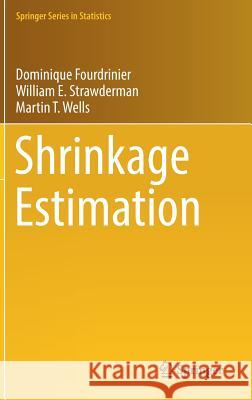Shrinkage Estimation » książka
Shrinkage Estimation
ISBN-13: 9783030021849 / Angielski / Twarda / 2018 / 333 str.
This book provides a coherent framework for understanding shrinkage estimation in statistics. The term refers to creating a new, more centralized estimate by shrinking an original raw estimate towards a truer mean. This results in more stable estimates for population parameters, reduced sampling and non-sampling errors, and smoothed spatial fluctuations. The book focuses primarily on point and loss estimation for the mean vector for multivariate normal and spherically symmetric distributions. Chapter 1 introduces the statistical and decision theoretic terminology and results that will be used throughout the book. Chapter 2 is concerned with estimating the p-dimensional mean vector of a multivariate normal distribution under quadratic loss from a frequentist perspective. In Chapter 3 the authors take a Bayesian view of shrinkage estimation. Chapter 4 introduces the general class of spherically symmetric distributions. Point estimation for this broad class is studied in subsequent chapters. In particular, Chapter 5 extends many of the results from Chapters 2 and 3 to spherically symmetric distributions. Chapter 6 considers the general linear model with spherically symmetric error distributions when a residual vector is available. Chapter 7 then considers the problem of estimating a location vector which is constrained to lie in a convex subset of Rp. Much of the chapter is devoted to one of two types of constraint sets, balls and polyhedral cones. In Chapter 8 the authors switch gears away from location parameter estimation and focus on loss estimation and data-dependent evidence reports. Appendices then cover Weakly Differentiable Functions; Examples of Weakly Differentiable Functions; Vanishing Of the Bracketed Term in Stein's Identity; Examples of Settings Where Stein's Identity Does Not Hold; Stein's Lemma and Stokes' Theorem for Smooth Boundaries; An Expression Of the Haff Operator; Harmonic, Superharmonic and Subharmonic Functions; Differentiation of Marginal Densities; Results on Expectation and Integrals; and Modified Bessel Functions.











